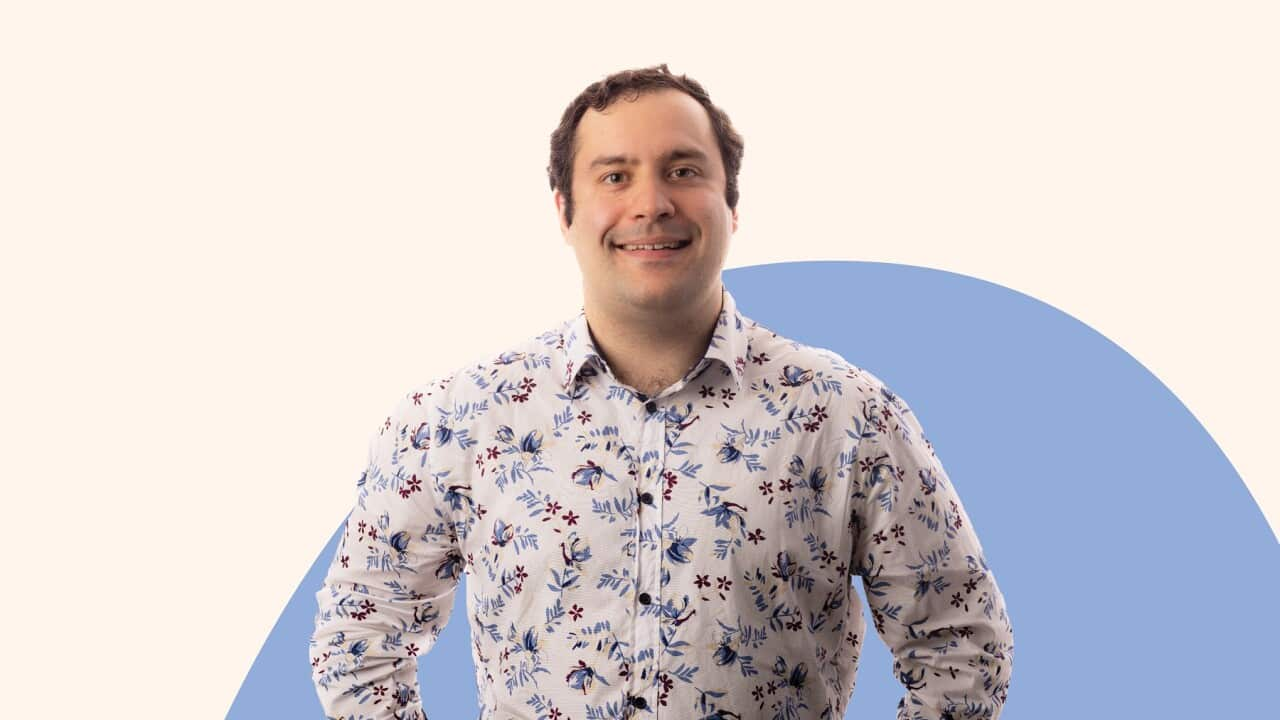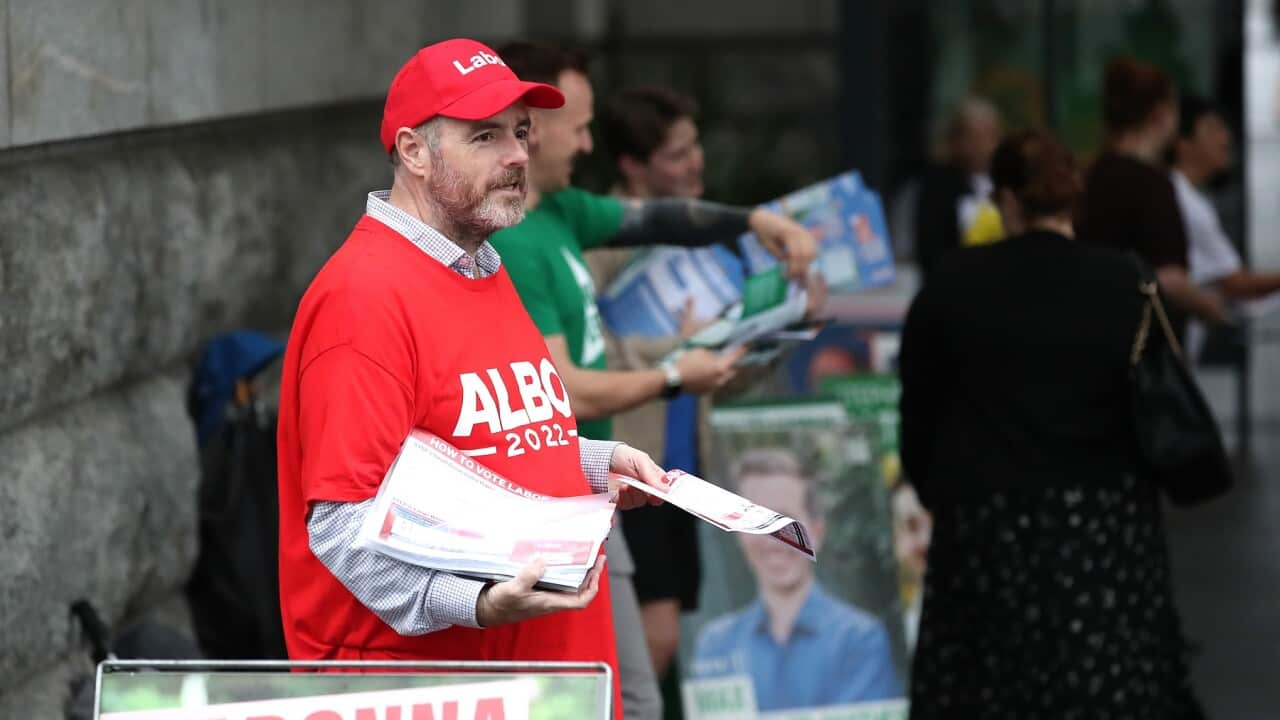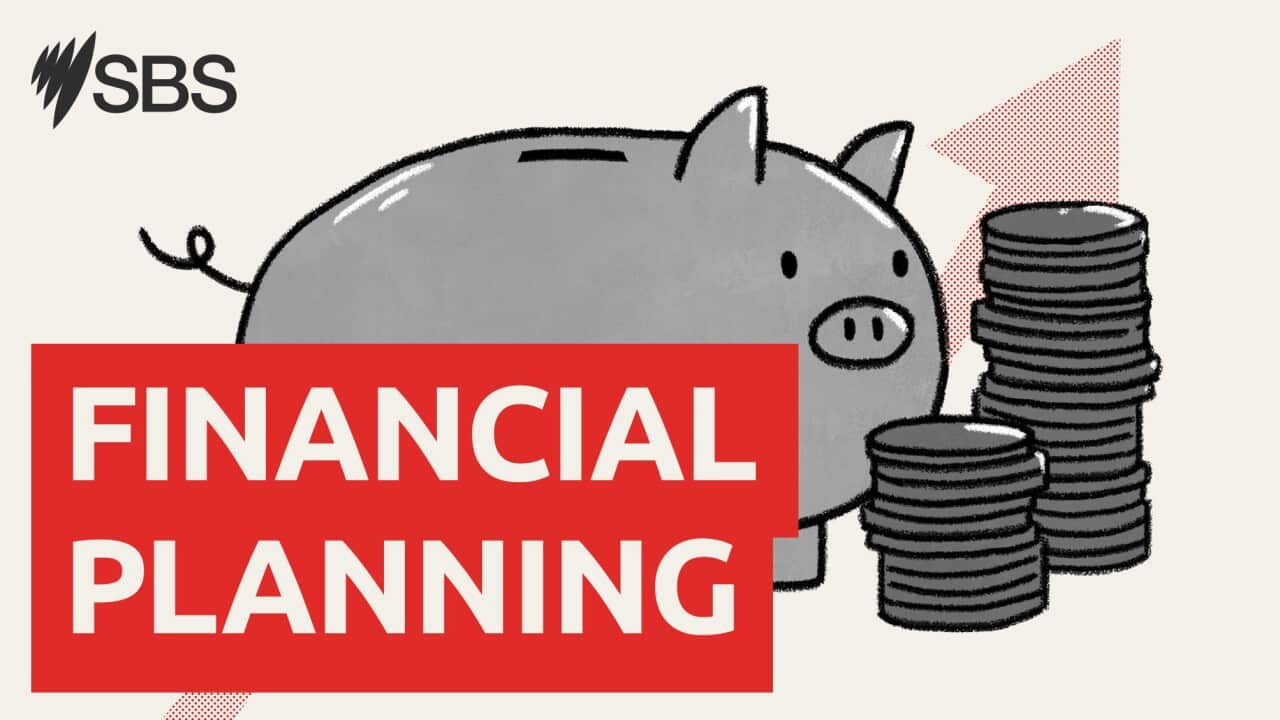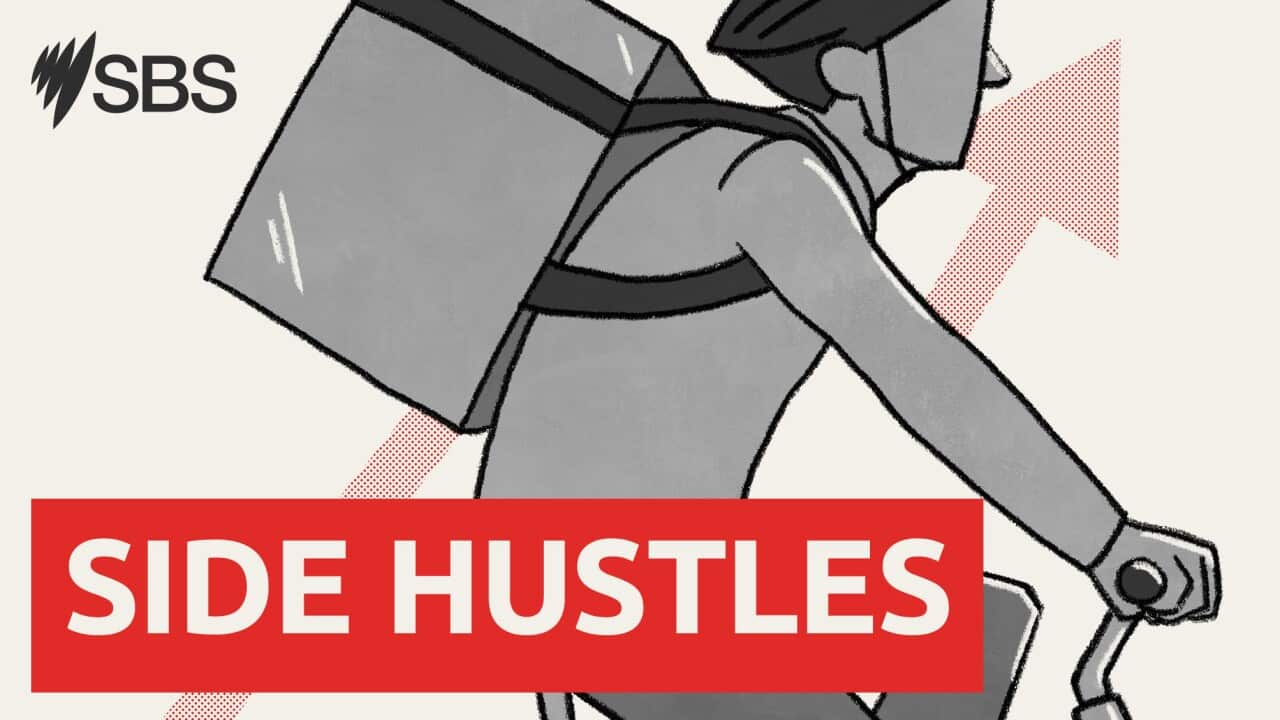TRANSCRIPT
Michael Theo doesn't like to be put in one box.
The Sydney-based actor always knew he wanted to pursue a career in the performing arts. And he doesn't want to be limited to just one domain.
"I have always known that I have always wanted to be an actor since I was a very little kid. Since I was under five years of age. Because I enjoy making people laugh. And I enjoy the craft itself. Because in my eyes, the performing arts is a sacred form of arts and should be regarded as such. And also, acting is part of who I am."
That dream was made more challenging with a diagnosis at the age of eight of what is now known as Autism Spectrum Disorder, but which before a 2013 reclassification included Asperger's syndrome.
Autism Spectrum Disorder refers to a range of conditions impacting the way the brain learns; and also how it processes sensory information - such as light and noise.
The lifelong condition affects each individual differently - impacting their ability to interact with people and the world around them.
This can have profound consequences on employment and education outcomes.
For Michael, he made a decision early on to define life on his own terms.
"I also decided a long time ago that I would no longer take no for an answer when it comes to my goals. Because I found myself taking no for an answer from others. But no one was hardly taking no for an answer for me. So I thought to myself: why should I do that for them?"
In 2019, at the age of 25, he achieved his first major on screen role, on the Australian documentary series 'Love on The Spectrum', which follows young adults on the autism spectrum as they navigate the world of dating and relationships.
He says the encouragement to pursue his passions has been very rewarding.
"What living with it can be like and how difficult it can be to find love on the spectrum (are autistic). Because people on the spectrum have to work twice as hard to achieve their goals; what they want in life. Because there are some people in this world that aren't willing to give them that chance."
He didn't find a lasting love interest on the show, but it led him to the relationship he is now - with his partner, Jessica.
It has also led to other projects, including entering the world of podcasting and his latest venture: a children's book.
He says having that support from those around him has allowed him to showcase what he can offer and contribute - and it has made all the difference.
He says the task of achieving one's full potential can be understood through the analogy of a seed.
"How is a peach pit ever supposed to become a tree if you never give it a chance to grow? And the only way that they can grow is to be given the chance to fulfill their potential, unlock their potential, fulfill their goals and become whatever they wish to be."
It is also why he supports the latest campaign commissioned by autism service provider Aspect to encourage Australians from all walks of life to improve their understanding of how they can make a positive impact in the lives of autistic people.
The survey of more than 1,000 people was conducted by YouGov in February [[2025]], finding that 45 per cent of those surveyed admitted to having a limited understanding of autism.
A third of respondents said they did not know what to say if someone disclosed they are autistic.
The CEO of Aspect, Jacqui Borland, says the research is revealing on the progress made in the 17 years since the United Nations declared an international day to improve awareness and understanding of autism.
"So look I don't think there is ongoing research. Aspect commissioned this piece of research just to find out where we're at. So we have had autism awareness campaigns for a number of years. So we do know that with 1 in 40 people diagnosed on the autism spectrum; a lot of Australians do now have a personal connection with autism. So we know that awareness is growing stronger. But the next stage to awareness is understanding. This piece of research was really trying to get past awareness - to just how well people think they understand autism."
Held annually on April 2, the global day (World Autism Awareness Day) promotes the full realisation of human rights and fundamental freedoms for autistic individuals, ensuring their equal participation in society.
Ms Borland says the true potential of autistic Australians has yet to be realised, particularly when it comes to employment.
"Autistic people are unemployed or underemployed to a far greater degree than the general population and even to a greater degree to people with other types of disability. So what that tells us is there is this large group of people who do have skills and who do want to work. If we can just understand, make those adjustments to our workplaces; perhaps to our hiring practices in the first place. Then there is a potential to really - for the betterment of our community - include autistic people in the workforce."
She says simple adjustments can be made in the workplace that benefit the whole workforce.
Things like written instructions provided ahead of time, setting up a quiet room for meditation, or the provision of noise-cancelling headphones to reduce the sound level in offices.
"Just being flexible in terms of how you might communicate. The sort of environment you might expect an autistic person to be in. How busy that environment is. How noisy that environment is. But very much being led by the autistic person and what they tell you supports them. Because first and foremost, we know that every autistic person is different. The best thing we can do is to ask them individually how we can support them."
For mother-of-two, Ainslie Robinson receiving a diagnosis for autism as an adult was a turning point.
"So I was raised in the '80s; and not much was known about autism back then. So there was the searching for answers back then. But there just wasn't the information to be had. So my diagnosis did come after my son's. I self-identified with my son, which was when I was 33 and he was just on 3 years old and I then sought official diagnosis shortly thereafter. It gave me permission to be kinder to myself because before that period of my life I thought that the way I interacted with people - and the way that I did everything was essentially wrong. And that takes a toll on a person and their mental health - a significant one. Once I had the diagnosis, it allowed me to be a lot more compassionate with myself."
A researcher and working-in-partnership officer at Aspect, she now spends a lot of time bridging the gap to overcome misunderstandings that impact attitudes towards autistic people.
She says the best approach is to be curious - and get to know people as humans.
"I think that is the greatest way to open that conversation in a really neutral way. And over time learning how interactions might be different with that person. Just seek clarity, instead of getting upset with the person. I would just like to see when I'm out and about and I happen to mention that I - or one of us - in our ragtag band of misfits is autistic. That random people that I encounter can say: oh, I know this about autism. Or demonstrate a level of understanding and empathy. I think that would be pretty cool."
Michael Theo says he also supports that piece of advice - and adds: small actions can have a big impact.
"In terms of responding to someone who discloses that they're autistic. One of the best things that you can ask them: is there anything I can do to accommodate you. In my case, I would say something like: generally, you don't need to do much. I don't want or need special treatment. Sometimes when noise gets to be too much, I just need a quiet space, so I can recharge. Our energy levels are like batteries and they always need recharging. Everyone has a way to recharge. If noise becomes too much for me, I would just need a quiet space."













